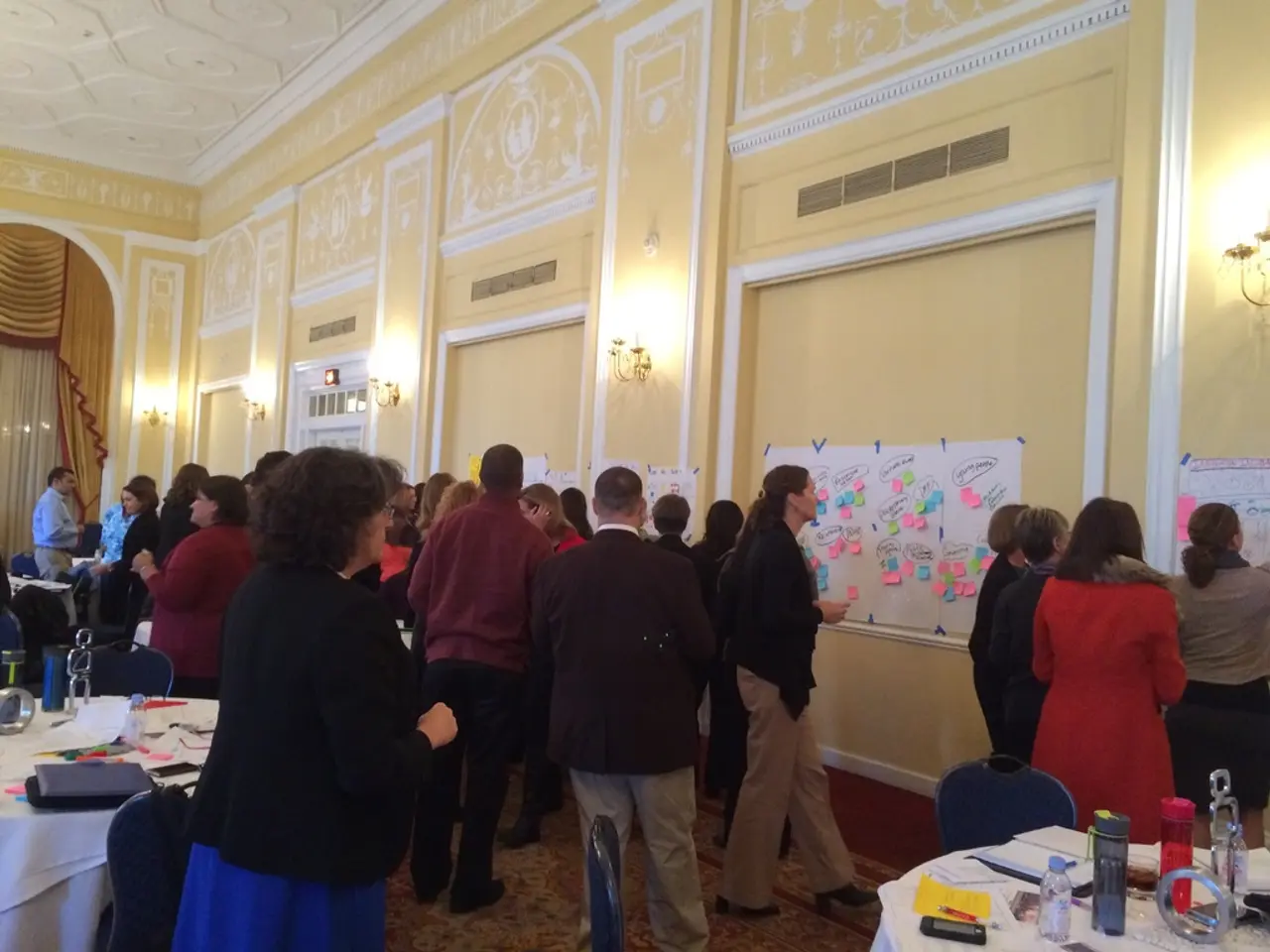Exploring the moral dimensions of art and historical site immersions: An examination of potential issues and consequences.
In the ever-evolving world of culture and technology, immersive experiences have become a significant focus for museums, galleries, and heritage sites. However, these innovative practices are not without their ethical challenges.
The Creative Industries Sector Plan has made several key announcements, emphasising the potential of immersive experiences while acknowledging the need for careful consideration. One of the main concerns is ensuring physical and emotional protections in heritage contexts. Some people may find these media uncomfortable to use or manipulate emotions, making it crucial to maintain a balance between innovation and sensitivity.
Cost is another important barrier to consider. Immersive experiences often have specific technical requirements that might not be accessible to all. This raises questions about equitable access and the potential digital divide along various trajectories such as geography, age, ability, gender, class, and ethnicity.
Debates about re-creation and authenticity are also important in digital heritage. The blurring of physical/digital or fact/fiction can lead to ethical concerns, and it's essential to maintain a balance between innovation and preserving the integrity of our heritage.
Environmental concerns are a pressing issue in the sector, with a need to develop and support a 'green' digital heritage agenda. The 2025 Spending Review has implications for the creative industries, and it's crucial that environmental sustainability is a priority in any future plans.
Data rights and user privacy are other ethical issues that need to be considered, particularly regarding data governance, data integrity, data security, and third-party partnerships. Institutions currently involved in the debate on ethical questions regarding immersive practices in cultural institutions include interdisciplinary collectives like the BaseCamp initiative associated with the Locarno Film Festival and the Medizinhistorisches Museum at the University Medical Center Hamburg-Eppendorf focusing on medical ethics and immersive installations such as TECHNOBODY.
The PEC Discussion Paper, titled "Immersive experiences in museums, galleries and heritage sites: a review of research findings and issues," presents an overview and guide on immersive experiences for cultural institutions. The paper discusses the potential of immersive experiences but also highlights the complexity in designing and evaluating them.
Professor Nick Wilson discusses the Equity Gap in Britain's Creative Industries, while Dr Jenny Kidd and Dr Eva Nieto McAvoy delve deeper into accessibility issues. Dr Josh Siepe is discussing the Geography of the Creative Industries. The Global Creative Economy Council is having conversations between the Global North and South to unsettle and reorder the creative economy.
It's clear that many ethical questions need to be engaged with to ensure good, ethical, and just work in the field of immersive experiences. Institutions and individuals must continue to discuss and address these challenges to ensure that technology serves as a tool for enriching our cultural heritage, rather than a barrier to access.
Journalism occupations are included on the DCMS's list of Creative Occupations, underscoring the importance of journalistic perspectives in the debate around immersive experiences in cultural institutions. As we move forward, it's essential that we continue to explore these questions, ensuring that our heritage is preserved and shared in a way that is accessible, equitable, and sustainable.
Read also:
- Peptide YY (PYY): Exploring its Role in Appetite Suppression, Intestinal Health, and Cognitive Links
- Toddler Health: Rotavirus Signs, Origins, and Potential Complications
- Digestive issues and heart discomfort: Root causes and associated health conditions
- House Infernos: Deadly Hazards Surpassing the Flames








